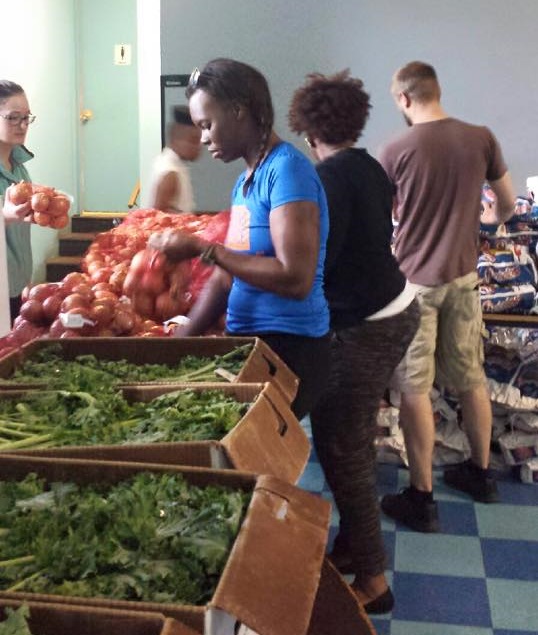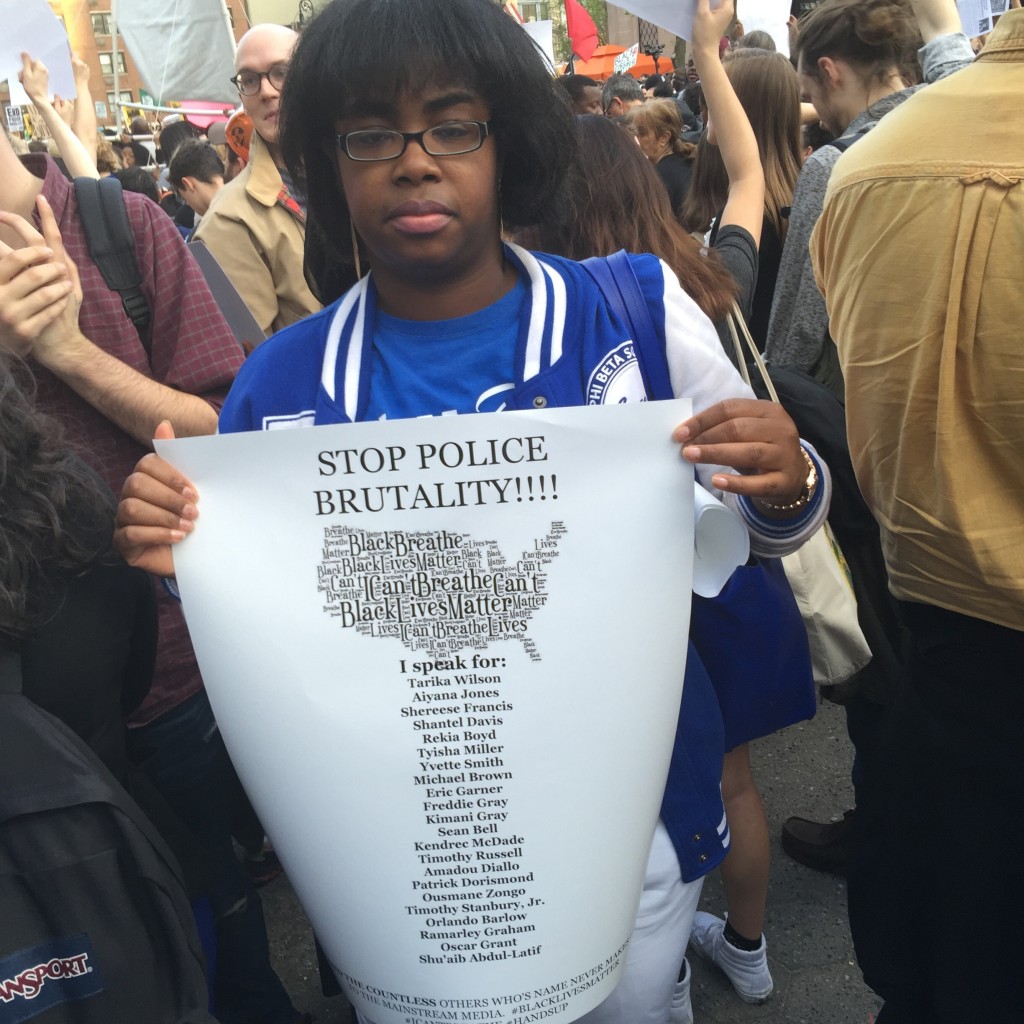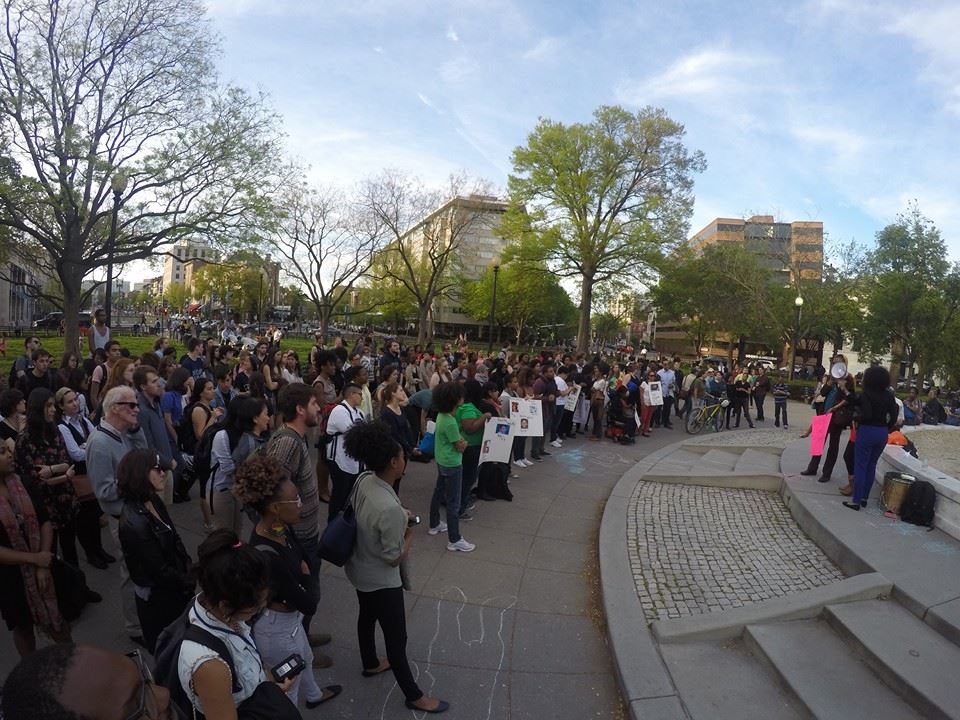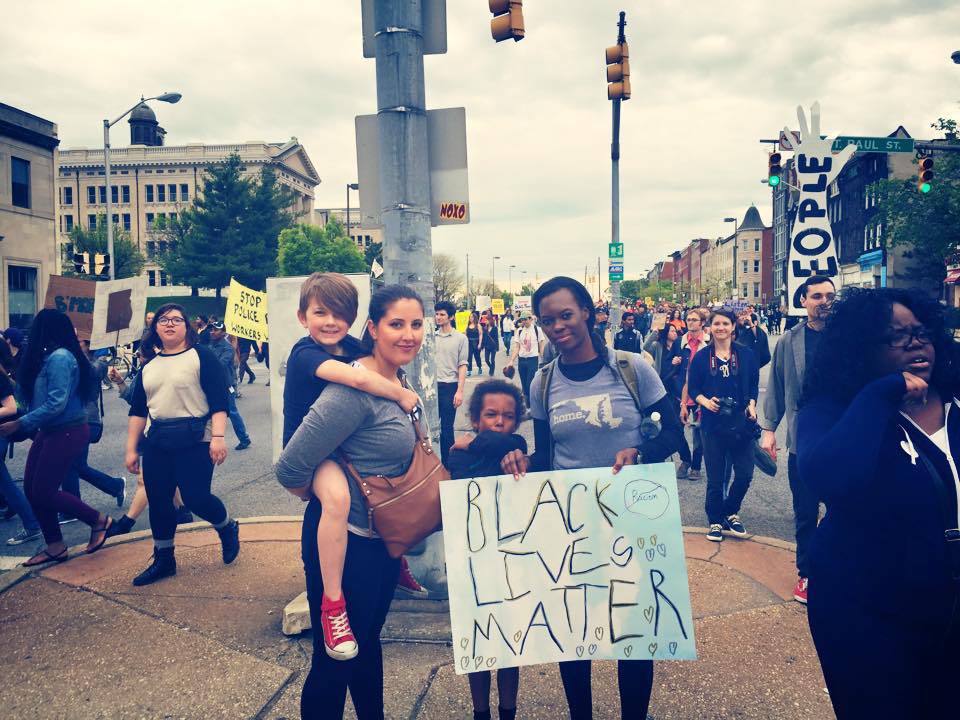Our board member Maureen (on the right) marched in Baltimore last night. #BlackLivesMatter
USA: YouTube Trolling and Street Harassment
Dylan Jane Manderlink, Arkansas, USA, SSH Blog Correspondent

I recently watched a few anti-street harassment videos made by nonprofit organizations and I was so elated and proud to see the anti-street harassment movement get traction and attention. But then I read the comments below and my mood drastically changed.
I could write a rant on every single misogynistic comment I saw and feel better about getting it off my chest. But I’m not sure how much good that would actually do at the end of the day. I don’t think there will ever be a feminist article or blog post to end all misogyny and hateful trolling, but I am tired of waiting for my turn to speak and I am getting impatient with feeling punished for my feminism. Above all, the anti-feminist and misogynistic discourse is precisely why we need feminism in the first place.
Online misogynistic trolling is a form of harassment and violence – just like street harassment. The two serve to promote a harmful and pejorative notion that women are fundamentally subordinate, invalid, incapable and solely exist to be ineffective and powerless. So when I was scrolling through the deluge of vulgar and demeaning comments on YouTube, one troll particularly fired me up by saying “People are free to hit on you” in response to a video about catcalling. Of course all of the trolling and misogynistic comments were derogatory and slandering, but this comment just represented the distance that exists in society from shared humanity.
This comment wasn’t even a disguised attempt at male supremacy, misogyny, and self-satisfaction – it was brazenly there for all to see with every lack of care, decency, and respect as possible. Allowing men to have a “free pass” at hitting on and catcalling us is a denial and complete neglect of my rights and personhood. No one is free to hit on me. I should be free to walk through a public space without falling victim to harassment, unwanted comments and glares, public sexualization, and unsafe circumstances.
With this being my last post through the Blog Correspondent’s Program, I’ve been searching for a particular aspect of social activism and advocacy surrounding street harassment to write passionately about. I’m certainly passionate about ending and raising awareness of street harassment but I think what I’m most fired up about right now is in reaction to the dejection I often feel when advocacy efforts are severely ridiculed, trivialized, and damaged by online trolls.
I know activists and advocates often recommend not reading the comments posted by trolls on feminist articles, videos, and social media but it’s difficult to ignore the blatant disregard for an important fight against the mistreatment, inequality, and marginalization of others. The misogynistic online trolling I’ve seen on YouTube, Facebook, and Twitter has not only made me feel stunningly uncomfortable and uneasy, but it has showed me how comfortable people are with defaming, dehumanizing, and attacking others. Although reading the comments posted on feminist and female activist videos and articles upsets and offends me, it’s also what motivates me to keep fighting this fight. And if the trolls want me to give up and throw in the towel, they couldn’t be more wrong. If anything, the anti-feminist trolling has given me more ardor in my commitment and involvement in women’s rights, feminism, and social activism.
I want this post to not just serve as a strong grievance and indignation with misogyny and trolling against feminism and anti-street harassment activism. I want to put this hateful act of misogynistic trolling on display so that it’s no longer thinly disguised and permissible. It’s harrowing to admit how normalized anti-feminist online trolling has become and I want to call attention to how much of an anomaly it should be (or how non-existent it should be).
Don’t get me wrong, I think free speech is a basic right we all deserve and should be entitled to, however, when this form of free speech serves the sole purpose of “putting women back in their place”, making women feel even more unsafe and inferior, objectifying women through abhorrent commentary, and invalidating women’s existence in society, then I cannot and will not support it. I will no longer stand for an online narrative that is incredibly short-sighted, unjustified, offensive, and inglorious. As advocates and activists, I understand that the idea of changing this narrative and pushing back on the trolls is a lot easier said than done. Not only can responding to the trolling make women feel unsafe (because people who speak up against trolls are often threatened), but sometimes it can seem like a lost battle because it doesn’t end. I’m not fully recommending we respond to every anti-feminist and misogynistic trolling instance, but I am certainly fired up to out them and put their inflammatory and insolent behavior on display.
So that’s what my last post is about. I will no longer allow women to fall victim to a false belief system and disempowering narrative due to the pervasiveness and poisonous impact of online trolling and public misogyny. Although standing up to the trolls or raising public awareness of the harms of trolling are difficult and disheartening, if you are creating change you believe in, then don’t feel discouraged.
For anyone looking to improve the quality of social media and virtual spaces for women, let’s start now. Who’s with me?
Dylan is a recent graduate of Emerson College and currently teaches 8th, 10th, and 11th grade Digital Communications and Audio/Visual Technology in an Arkansas high school. You can visit her personal blog and follow her on Twitter @DylanManderlink.
“Then made lewd comments about my body”
Walking dog on street near my house. Came in to contact with three older men. One said I can tell your dog isn’t friendly but you look sweet. Told them not to come any closer that the dog will bite (he wouldn’t have). They stopped approaching me but then made lewd comments about my body. example: ʺdat ass tho.”
– Anonymous
Location: Louisville, KY
Share your street harassment story for the blog.
See the book 50 Stories about Stopping Street Harassers for more idea
Standing with Baltimore
On April 19, Baltimore resident Freddie Gray died in police custody from spinal injuries. How it happened has remained unknown, but it sparked protests in Baltimore this week akin to those in Ferguson, Missouri in 2014. To learn more about why, here is a Washington Post article written by a reporter who has lived in Baltimore for 30 years.

Because a minority of people at the protests grew violent (some burned a CVS), some media outlets have unfairly focused on them rather than the majority of peaceful protesters who simply want justice for Gray and justice for their communities.
SSH Board member Maureen Evans Arthurs lives near Baltimore. She shares what she did on Wednesday:
“I joined the No Boundaries Coalition at St. Peter Claver Parish in Sandtown, Baltimore to distribute food and toiletries to residents in need. The community asked for help, and we were right there to provide it. The media is depicting Baltimore as a city of lawlessness and upheaval, when really, communities are coming together to support one another and causing a positive uprising for change. #BmoreUnited
Every day this week there have been protests and that will continue, not just in Baltimore, but in other parts of the country. CNN reports:
“From coast to coast, marchers are taking to the streets to support Baltimore protesters and complain about police brutality in their own towns. The momentum only seems to be building as the week goes on.
Demonstrations are planned for Thursday in Cincinnati,CNN affiliate WXIX reported. And Philly.com said a “Philly is Baltimore” protest will be held at Philadelphia City Hall. Seattle, Portland, Oregon, and Oakland, California are on tap for Friday, which is also May Day or International Workers Day — often used to call attention to issues affecting the working class and minorities. In addition to Baltimore, protests took place in at least half a dozen cities Wednesday.”

SSH Board member Malikya Muhammad lives in New York and she joined the “NYC Rise Up & Shut It Down With Baltimore” last night with 1000s of other protesters. Unfortunately though, she said it turned scary, “The cops turned a peaceful protest into a jail cell roundup folks who have been doing this for awhile. I never saw anything like this before.”
Men are not the only ones unfairly policed or killed. I attended a vigil in Washington, DC, last night for Rekia Boyd and other Black women who have been killed by police. The organizers had us chant out for justice for dozens of women and women in the crowd came up to share poems, songs, and thoughts. Several reminded the Black women in the audience that they matter, their stories, their voices matter. Indeed, they do.
We hope you will do something, take a stand (take part in the “Shut it Down” event May 1 in Baltimore), speak out, and advocate for a cultural shift where #BlackLivesMatter and everyone feels safe in their communities.

“If we want to change then we can”
I was born and raised in a society that we can call a “Mannish Society.” In Afghanistan in families and even in every part of our society, it is the man who speaks and decides to do as he wishes. The last words are being said by men not women. Afghanistan society is a male dominant society.
In such environment it is really really hard for women and girls to live normally. Among the numerous problems that females are confronting in Afghanistan, street harassment is more usual and steady steady and somehow it is being changed to a culture.
Why am I saying that street harassment is changing to a culture here in Afghanistan?
Because, majority of Afghans are illiterate and they believe and accept whatever the Mullas (some) say to them in Mosques. Mullahs allow men to engage in street harassment in some cases. Especially when a female walks in the streets with so-called inappropriate clothes, then according to their ideology men are allowed to say bad words to them and even physically harass or rape them. Why is doing this not a bad act? People and Mullahs would say because these girls or women are not practicing Islam and not wearing Hijab. This is the fact of our society!
When I was studying English, my classmate Maryam was very intelligent and beautiful. Because she was raised in Iran her clothes and style was a little different form other Afghan girls. I witnessed that many boys harassed her with bad words daily and some of them were my friends. All she could do was to remain silent because she did not want to make this issue bigger. But day by day this problem got serious and she lost her patience. She started arguing with those boys that were harassing her but she was alone, she failed. She left the class forever.
It hurt me a lot to see her in such condition. I tried many times to talk with my friends and stop them from harassing her but since I was younger than those boys, no one cared. I talked with our teacher to help me stop these acts, but he was not eager to help me as well.
After that incident whenever I see people harassing girls or women in streets and university I go to them and talk reasonably with them to stop them and explain to them that their act is wrong. I ask what if it happens to their sister or mother, what then?
Now it is the time for everyone to start vanishing this bad and shameful culture. Yes, if we want to change then we can. We can start it right now! As Mahatma Gandhi said, “Be the change that you want to see in the world.” By using social media, TV and radio spots, adding the topic of not harassing females to school books and explaining the negative impacts of street harassment, we can bring changes.
– Shafi Bajauri
Location: Kabul, Afghanistan
Share your street harassment story for the blog.
See the book 50 Stories about Stopping Street Harassers for more idea

